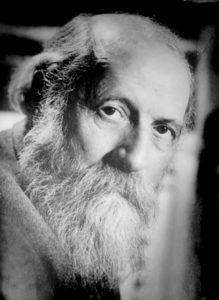Martin Buber was an incredible individual, a visionary, and one of the foremost scholars of Judaism in our modern era. He’d written about many topics throughout his lifetime, but one which became all-pervasive is “I, Thou,” which he described as “a genuine meeting between two unique people in which both openly respect the essential humanity of the other.” The purest of the I, Thou relationship is seen as that between man and G-D (The eternal Thou), which makes up the model of/for the possibility of human relationships. More often, human relationships are entered into the I-It model, in which people see one another as a thought or object, but should strive for the I, Thou modality.
Buber said;
“The primary word I–Thou can only be spoken with the whole being. The primary word I–It can never be spoken with the whole being.”

In the simplest of terms, I-it is recognizing someone as an objectified and easily stereotyped/boxed creation, whereas I, Thou recognizes the human, the mind, body, and spirit of the individual… their uniqueness and connectedness. I, Thou allows for full empathy, it emboldens the humanity inherent in us to recognize the full breadth of humanity in others. Buber wrote;
“I believe that the key to creating society that is nourishing, empowering and healing for everyone lies in how we relate to one another.”
To explore I, Thou, you explore humanity, your relationship with others, and to G-D, without judgment or objectification, whereas I-it is how we deal with what is outside of ourselves, others as an object. I-it deals with experiences, which in the modern world humanity seems to hold with exclusivity in their thoughts as man collects data, analyzes it, classifies it, and theorizes about it. This is why in the modern era, so many people feel hopelessly unfulfilled.
The I-it is something to be utilized, something to know and use for some purpose or end. I-it is to be experienced as a collection of qualities, multiple parts of some thing, rather than someone. You view the I-it experience as an objective observer and not as an active participant. I, Thou however you are actively engaged, aware of the humanity involved in your relationship, and able to feel and think on an empathetic level. I, Thou you see the inner humanity, not the outer facade, you don’t see “the homeless,” you see a person, a human being in need of assistance, you don’t see “a cancer patient,” you see a person, a human being suffering from an ailment. Thinking in I, Thou you don’t see what the person has or how they look, you see who and what the person is, their humanity and can connect with them on that level.
Gestalt Psychotherapy utilizes a lot of Buber’s concepts from I, Thou and it’s partially why it is so effective at helping people. This is a philosophy put into practice at its highest level and if society operated more on the I, Thou, we’d have a society full of love and understanding… I think that was Buber’s goal.